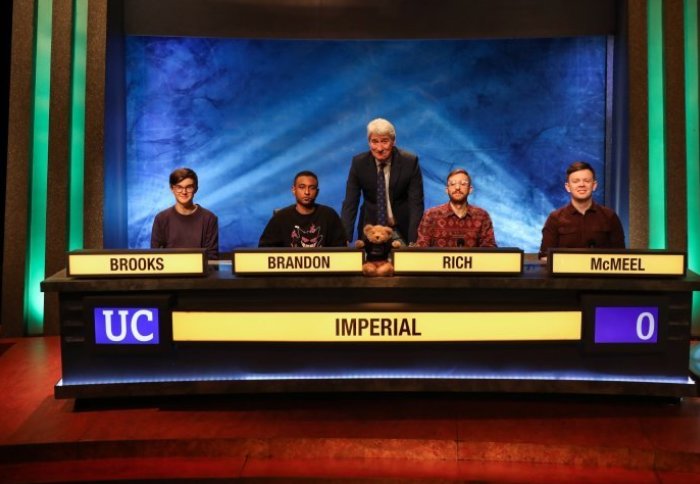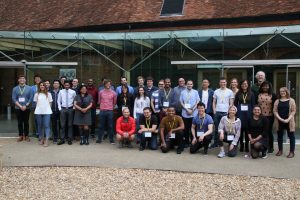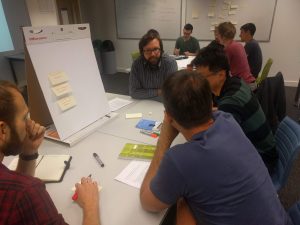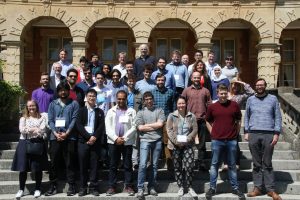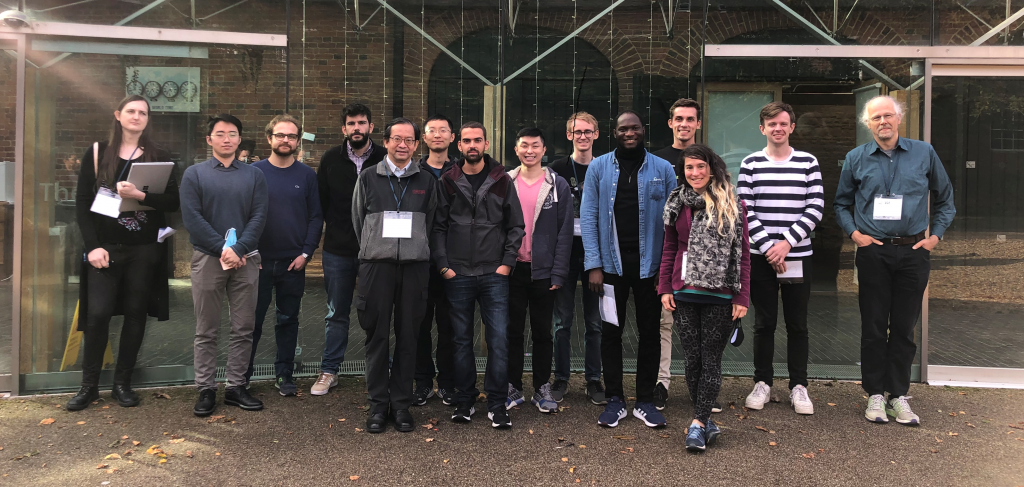
After being postponed multiple times by the pandemic, the final Creativiety Sandpit for the final HiPEDS CDT cohort took place in late September 2021. The cohort was joined by students from the KCL CDT in Smart Medical Imaging, as well as other students from Imperial’s Physics, Computing, Electrical Engineering, and Earth Science and Engineering Departments.
The two-day event was spread across three days. We were very fortunate to welcome to the event industry engineers who each presented a challenge, which the students would work on during the event. The challengers were from Stryker, The Engineering Company, and Huawei Research. Each gave a stimulating briefing for their challenge: How could wearable or implanted sensors to improve recovery from knee replacement surgery; How can humans and computer systems collaborate on engineering problems; and How can we improve the experience of using everyday devices for the elderly. Together with academics from Imperial, the challengers participated as mentors throughout the sandpit, giving valuable guidance and feedback. The underlying theme of the workshop was reflecting on various activities, all of which can enhance creativity in different ways.
During the first day, the students learned about the challenges, started asking questions and having initial ideas, got to know each other, and built Rube Goldberg contraptions for popping party crackers. There was also an activity to demonstrate different aids to being creative. On the second day they constructed mind maps and thought of potential solutions ideas for the problems before forming small groups to work on one of the problems for the remainder of the workshop. After initial presentations and feedback from everyone, the mentors ran a “test lab” to help the students challenge themselves further about their ideas. On the final half-day, the students presented their ideas for final feedback and then gave an elevator pitch to conclude.
Students appreciated the chance to discuss research ideas from an industry perspective and to work on real industrial challenges. The aims of the sandpit were several: to give them an opportunity to reflect on their own approaches to creative thinking, enable them to meet and work with peers from other institutions, and to discuss research with industrial engineers.
The event was facilitated by a team from The Collective.


